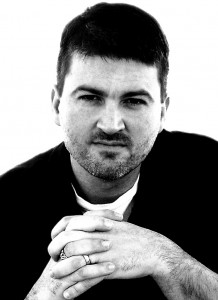Learning From Bad Books, Part 6
People yelled at me a lot two summers ago for fault-finding with a popular Christian book I had not, technically, read myself. Yet itâs odd how many people never denied my perceptions of this book, which were based on negative reviews by those who had read the book and were informed.
Last week, during the same bookstore visit I mentioned before, I found that book and tried a version of Bible roulette. You know, flip to a random page (122) and get the dayâs âwordâ:
[Question from Mack:] âIsnât there a chain of command within the Godhead?â
[âJesusâ:] âChain of command? That sounds ghastly.â
[âPapa,â symbolizing God the Father:] âWe have no concept of final authority among us, only unity. [âŠ] What youâre seeing here is a relationship without any overlay of power. We donât need power over the other because weâre always looking out for the best. Hierarchy would make no sense among us. Actually, this is your problem, not ours.â
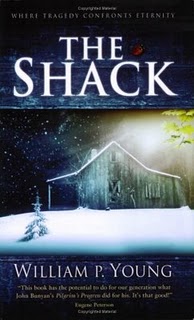 The dayâs âwordâ was un-Biblical. Straw-man fallacy, false dichotomy, argumentum ad hominem. In short, Shack fail. (Side note: even a liberal version of Jesus sounds wimpy by uttering the Victorian-sounding word âghastly.â) And furthermore, Christian fantasy fail.
The dayâs âwordâ was un-Biblical. Straw-man fallacy, false dichotomy, argumentum ad hominem. In short, Shack fail. (Side note: even a liberal version of Jesus sounds wimpy by uttering the Victorian-sounding word âghastly.â) And furthermore, Christian fantasy fail.
Because even fantasy has its limits. It must seem realistic. And whether applying to The Shack or my favorite fiction foil in this series, I contend this is true: any fantastic story set in this world, but violating specific tenets here, slams a readerâs formerly suspended disbelief into the ground, and worse, slams God and His truth.
Bad fiction, worse doctrine
Most of my discussion over The Shack was at several Boundless webzine blogs, including this. Writer Tom Neven followed that with reminders, not only about the need to discern according to Scripture, but about fiction.
While fiction is by definition a story that doesnât pretend to be true, it still must adhere to certain basic rules. You can create any universe you like, but once youâve created it, you must stick to its internal logic. If zurts are green and fly and jurts are blue and donât fly, you cannot willy-nilly switch these âfactsâ around, even if they are totally products of your imagination. And if for some reason in your story we see a blue jurt that is flying, youâd better have a good narrative explanation for why or else youâve confused the reader.
If youâre going to ground your fiction in the real world, then it must conform to the rules of the real world we live in. No unicorns or magic squirrels allowed. Even one of my favorite literary genres, Magical Realism, adheres to certain basic rules.
So if youâre going to have God as a character in your real-world fiction, then you must deal with God as he has revealed himself in Scripture. By using the Trinity as characters in this story set in the real world, The Shack author William P. Young is clearly indicating that heâs supposedly talking about the God of Christianity. But God has said certain things about himself in Scripture, and much of what Young does in this novel contradicts that. I donât care if heâs trying to make God more âaccessible.â Heâs violated the rules of fiction.
So âbut itâs only fictionâ isnât an excuse for writing untrue things about God. Thatâs not only slandering God, but insulting a readerâs intelligence â especially Christians.
If youâre a Christian and your story has slightly unorthodox elements â say, characters who return to Earth from the dead, or who achieve sinless perfection in this life or something â Iâll go with that, at least for a while, so long as itâs integral to a well-written story. After all, most people do the same thing while enjoying a non-Christian story (and non-Christians do that while enjoying a Christian story). But if a writer intentionally makes claims about the real God that Scripture shows are untrue, Christian readers will likely reject him â especially if those points are mere propaganda, or conversely have nothing to do with the actual story and are pointless.
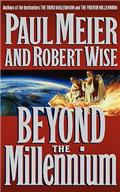 In the Millennium end-times books that started this series, wrong ideas about God are rampant, for sure, yet often arenât even integral to the story. In Beyond the Millennium, two angels (who have already been so clichĂ©d as to be embarrassing) dig it in even worse when, at the very end, they offer two Scooby-Doo-villain-esque demons a chance to be saved. Perhaps even sillier, another divergent, propagandistic scene shows a psychiatrist (hey! like the author, it turns out) feeding humanism slogans to a patient, such as âlisten to your feelings.â
In the Millennium end-times books that started this series, wrong ideas about God are rampant, for sure, yet often arenât even integral to the story. In Beyond the Millennium, two angels (who have already been so clichĂ©d as to be embarrassing) dig it in even worse when, at the very end, they offer two Scooby-Doo-villain-esque demons a chance to be saved. Perhaps even sillier, another divergent, propagandistic scene shows a psychiatrist (hey! like the author, it turns out) feeding humanism slogans to a patient, such as âlisten to your feelings.â
âMetaphorâ as an escape hatch?
Not long ago, having clearly not learned my lesson before, I began another short âresearch projectâ about The Shack: talking with strangers in yet another Facebook discussion. Many of the same you-havenât-read-it objections arose (yet no one said I was stating untruths about it).
Yet something new came up, something I hadnât considered: using âmetaphorâ as a magic word.
Figure A: someone said he could defend The Shack because it did not purport to give âfacts about God.â âHeck, where does the Bible even do that?â he asked. His support for this eyebrow-raising claim, not just about The Shack but the Bible itself? He said thatâs a metaphor.
Have you ever heard of a metaphor? If the Bible says, God is a mothering hen. does that make it a fact?
So weâve redefined the word metaphor. Once it meant a figure of speech or mental image to suggest allegories or parallels between one or more elements. So though a metaphor has more than one meaning â this, that or more â it logically also has a not something else meaning. But in this ânewâ definition, apparently metaphor can mean anything we believe it means.
Better living through non-communication and obfuscation? Hardly. And not better stories, either â or an escape hatch, magic word, spell or anything else to make it easier to write lies about God, a real-life Person, and escape consequences by calling them âmetaphors.â
Learning from nonfiction
Discerning readers and authors can evade âargumentsâ-through-fiction that slander God, the same way we do this in real-life living: keeping up with solid, Biblically based nonfiction.
To be sure, our first source is Scripture itself. Also helpful are books by Christian pastors and authors that exposit truth, either by Biblical book or by topic â not just the personal-devotion, help-us-develop-character variety, but the deep-doctrine-magic, focused-on-the-Gospel variety.
I once heard someone (I think it was a Christian fiction author) claim quite contentedly that he never read Christian nonfiction. Itâs pointless, he said, adding that almost all the books heâs seen are rehashing the same topics. Instead he keeps up with fiction and certain publications about fields that interest him. Now, perhaps he hadnât found the good books, but even reviewing truths we already know is vital to Christians; we can never exhaust this. Moreover, thanks in part to the internet, we have access to even better materials emphasizing the Gospel and Godâs truth.
Critiques from friends and other writers could also prove invaluable. Already writing is such a personal experience, so it makes sense that those who help us in our Christian walks could easily blend that task with finding style errors or suggesting revisions. When I read this, it seems to say God doesnât/does (et cetera), or that (truth) isnât true, so you might change that. Or, Your theme here could be much more subtle/clear/powerful if you added (this and such).
Denying the value of Biblical truth leads not just to a âpriesthood of artistsâ who may work apart from glorifying God. It leads to poor storytelling, and worse, responsibility for calling evil good.
(Finally, next week: Christian accountability may also help cut out a novelâs cheese. Yes, there will certainly be corny quotes.)

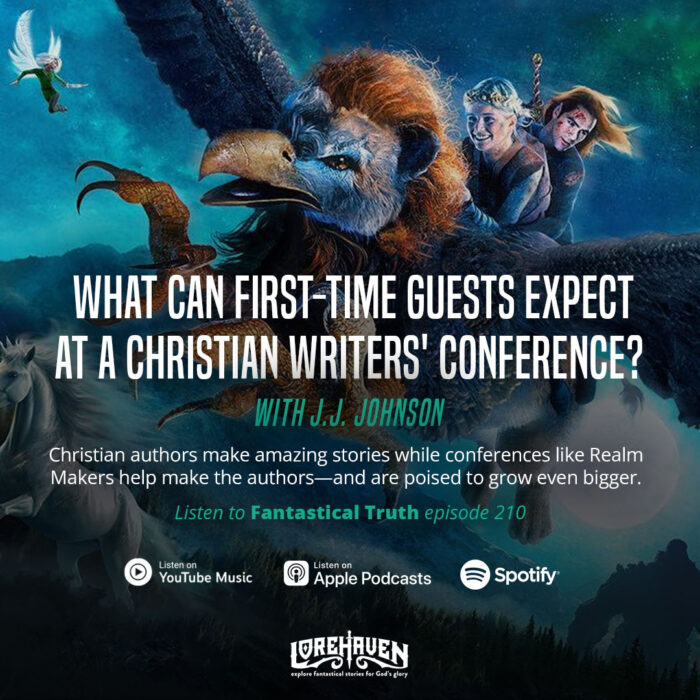

































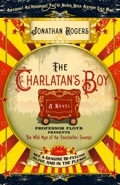
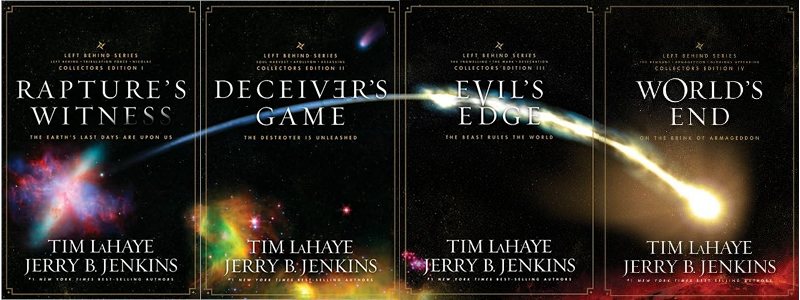
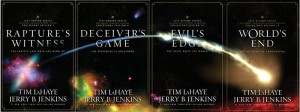
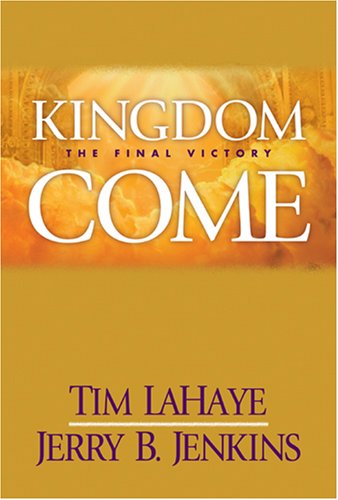 But Kingdom Come, the very last book (really) of the Left Behind series disregarded even the previous novelsâ sparse attempts to include fantastic, sci-fi and supernatural elements.
But Kingdom Come, the very last book (really) of the Left Behind series disregarded even the previous novelsâ sparse attempts to include fantastic, sci-fi and supernatural elements.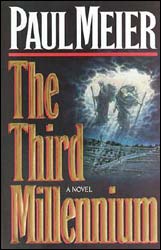 Hereâs what I would say to TTMâs author Maier â well, actually Iâd start with this: âDoctor, first, Iâm sorry, I canât help saying this, but remind yourselfâ (in the voice of DeForest Kelley) âSelf, Iâm a doctor, not a fantasy writer!â Then, assuming weâd covered that truth, Iâd suggest: âJesus Himself did miracles with a point. If He wasnât flagrant with His supernatural displays for His public then, why would He start in the end-times? Shouldnât our storiesâ fantasy have a point?â
Hereâs what I would say to TTMâs author Maier â well, actually Iâd start with this: âDoctor, first, Iâm sorry, I canât help saying this, but remind yourselfâ (in the voice of DeForest Kelley) âSelf, Iâm a doctor, not a fantasy writer!â Then, assuming weâd covered that truth, Iâd suggest: âJesus Himself did miracles with a point. If He wasnât flagrant with His supernatural displays for His public then, why would He start in the end-times? Shouldnât our storiesâ fantasy have a point?â